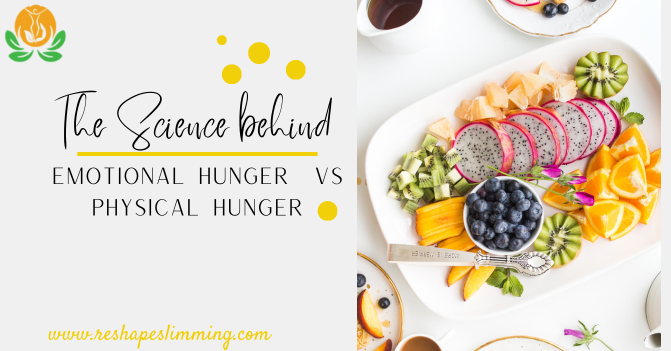- Reshape Slimming Wellness & Diet Center
- +91-72848 25055
- reshapeslimming.diet@gmail.com
- Filter by
- Categories
- Tags
- Authors
- Show all
- All
- DIET & MEDICAL
- HEALTH
- Uncategorized
- VEGETARIAN WEIGHT LOSS DIET RECIPES
- Web Stories
- WEIGHT LOSS
- WEIGHT LOSS BOOSTER DRINKS
- All
- activity
- aging
- ahmedabad
- apple
- apple smoothie
- apples
- applesmoothie
- article
- avocado
- avocado&hummuswrap
- avocadowrap
- ayurved
- ayurveda
- baking
- balancelife
- BEETROOT SOUP
- befit
- beginners
- benefits
- benefitsofremedies
- best dietician in pune
- best dietician in vadodara
- best online dietician
- beyoga
- blackbeans
- blackbeansalad
- blackbeanssoup
- bloodpressure
- boosterdrinks
- breakfast
- breakfastrecipe
- busyprofession
- cauliflower
- cauliflowerpizza
- CHIA SEEDS/SABJA SEEDS WEIGHT LOSS DRINK
- clearskin
- comfort
- cooking
- cranberry
- CURRY
- dates
- dehydration
- diabetes
- DIET
- dietarticle
- dietician
- dieticianinahmedabad
- dieticiansurat
- dietition
- dietplan
- dietrecipe
- diettips
- digestive
- discipline
- dragonfruit
- drinkwater
- dryfruits
- dubai
- eating
- eatinghealthy
- emotional
- energy
- exercise
- eyes
- fats
- fiber
- fiction
- fig
- figbenefits
- fit
- fitness
- food
- foodarticle
- foodmyths
- fruit
- fruits
- grilling
- habits
- habitsforprofession
- hair
- health
- healtharticle
- healthbenefits
- healthier
- healthy
- healthy smoothie
- healthycooking
- healthydiet
- healthyfood
- healthylife
- healthylifestyle
- healthynoodles
- healthyrecipe
- healthyrecipes
- healthyremedies
- healthyrestaurants
- healthyskin
- healthysmoothie
- healthysnacks
- healthywrap
- herbal
- hormones
- how to boost immunity
- how to enhance immunity
- howtolive
- howtomaintaindiet
- hummus
- hummuswrap
- hunger
- hungry
- hydrate
- hydrated
- hydration
- immunity
- improvelife
- india
- indianrecipe
- juices
- juices for weight loss
- kidneyhealth
- LENTIL SOUP
- life
- lifestyle
- liver
- liverhealth
- macronutrients
- management
- manageyourlife
- meal
- mealprepper
- meditation
- mentalhealth
- mind
- noodles
- nutrients
- nutririon
- nutrition
- nutritionfacts
- nutritionist
- nutritiontrends
- online dietrician
- PCOD
- PCOD DIET
- PCOS
- pesto
- physical
- physicalactivity
- physiological
- pizza
- pizzarecipe
- plantbased
- plums
- pregnancy
- preparemeal
- productivity
- profession
- PROSO MILLET IDLI
- protein
- PROTIEN SMOOTHIE
- PUMPKIN SOUP
- qualitysleep
- quinoa
- RAGI DOSA
- recipe
- recipes
- reducestress
- remedies
- reshape
- restaurants
- salad
- science
- scienceofhunger
- selfcare
- slimming
- smoothie
- smoothierecipe
- SOUP
- souprecipe
- spinach
- SPINACH SOUP
- steaming
- STIR FRY TOFU / PANEER VEGETARIAN WEIGHT LOSS DIET RECIPES
- stress
- stretching
- successful
- sugar
- sugarcane
- sugarcanejuice
- sugarintake
- supplements
- surat
- SWAMINARAYAN KHICHDI
- tangerine
- tangerinebenefits
- tastyfood
- timemanagement
- tips
- tonedbody
- top 10 dietician in mumbai
- top 10 dietician in vadodara
- trends
- typesofyoga
- udon
- veg
- vegan
- veganfacts
- veganlifestyle
- veganmyths
- veganrecipe
- veganrecipes
- veganwrap
- vegetarian
- VEGETARIAN WEIGHT LOSS DIET RECIPES
- vegetarianrecipe
- vegetarianrecipes
- vegetarianweightlossrecipe
- vegetarianwrap
- veggie
- veggies
- veggiewrap
- vision
- vitamin
- warmup
- water
- webstory
- weight
- weight lose in diabetes
- weight loss
- WEIGHT LOSS BOOSTER DRINKS
- WEIGHT LOSS BOOSTER RAJMA CURRY
- weight loss diet
- WEIGHT LOSS TADKA DAL| DAL
- weight loss tips
- weightloss
- weightlossdiet
- weightlossrecipe
- weightlosss
- weightlosssmoothie
- wellness
- wellnesshabits
- work
- worklife
- workout
- workoutforbeginners
- wrap
- wraprecipe
- yoga
- yogaforbeginners
- zucchini
- zucchininoodles
November 27, 2023
Published by Dietician Neelam Dhanagar at November 27, 2023
Categories
The Science behind Emotional hunger vs Physical hunger Understanding the nuances between emotional hunger and physical hunger is a key aspect of cultivating a healthy relationship […]

